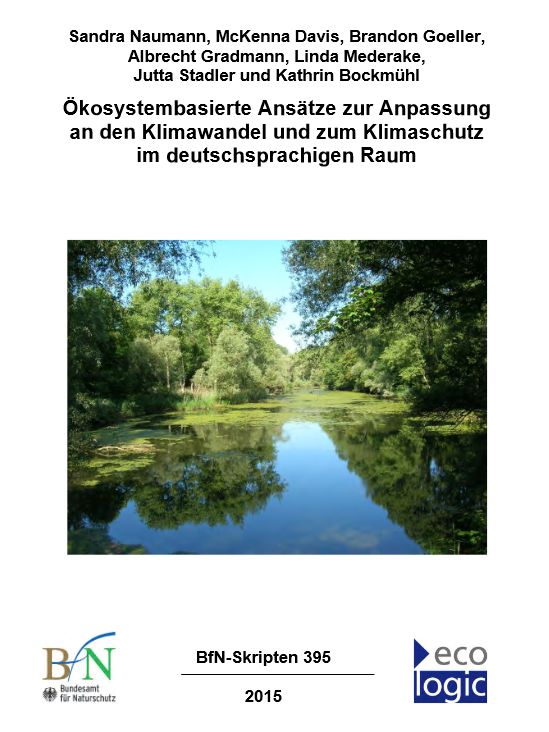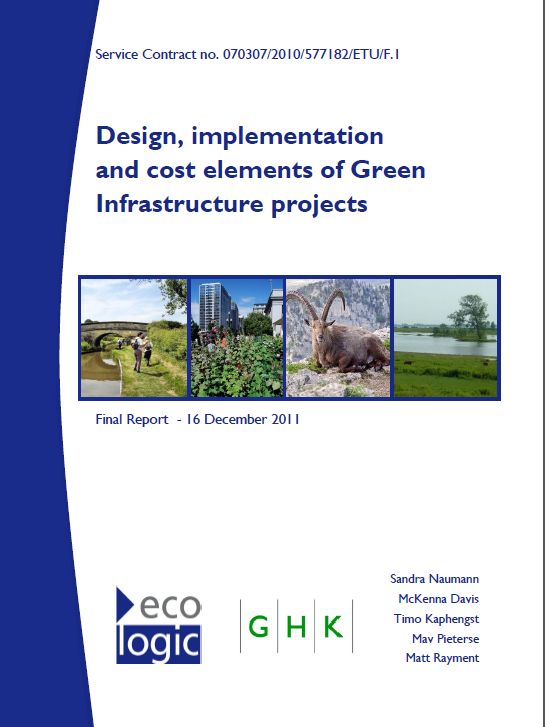Stable and healthy ecosystems are essential for climate change mitigation and adaptation. This applies to many sectors, such as agriculture, forestry, tourism, urban planning and water resources management. Mitigation and adaptation measures using the ecosystem-based approach are becoming increasingly important as they offer a variety of benefits and are often considered to be more cost-effective solutions than purely technological approaches.
The goal of this project is to demonstrate that ecosystem-based approaches are not only conducive to nature conservation, but also can provide numerous benefits for other sectors. To this end, examples of projects using the ecosystem-based approach to climate change mitigation and adaptation within Germany, Austria and Switzerland will be documented and analyzed for barriers and success factors arising in their planning and implementation. Ecologic Institute carries out this project on behalf of the German Federal Agency for Nature Conservation.
Background
The concept of ecosystem-based adaptation and mitigation originates from the international negotiations under the umbrella of the Conventions on Climate Change and Biodiversity (CBD and UNFCCC). According to the CBD (Decision X/33), this approach refers to measures for the conservation, sustainable use and restoration of ecosystems to increase the resilience and reduce the vulnerability of ecosystems and thereby help people to mitigate and adapt to the adverse effects of climate change. Here, conservation measures in a broader sense play an important role. For example, coastal ecosystems such as salt marshes and barrier beaches provide natural shoreline protection from storms and flooding; urban green spaces reduce the urban-heat island effect and improve air quality; rewetted (formerly drained) peatland areas avoid greenhouse gas emissions; and afforestation with native species help forests to adapt to climate change.
Objectives
The core objectives of this research project are to increase awareness of the ecosystem-based approach to climate change mitigation and adaptation in the Germany as well as Austria and Switzerland and thereby bring actors and institutions concerned with and interested in the topic together. These include agencies and institutions that are responsible for designing, planning and implementing climate change mitigation and adaptation measures as well as experts and scientists who deal with the approach.
This project therefore aims not only to create a greater awareness of ecosystem-based approaches and their advantages relating to climate topics, but also to promote an increased integration and application of such approaches in practice within climate protection efforts as well as in other relevant sectors.
Methodology
This study includes the following tasks:
- Extensive literature review
- Identification and analysis of projects to develop and extend the application of the ecosystem-based approach to climate change mitigation and adaptation in the European German-speaking regions
- Detailed analysis of selected projects regarding the barriers and success factors encountered during their implementation
- Creation of a project database
- Development of a brochure and a set of best-practice guidelines
- Organization of an expert workshop to validate the results and to exchange experiences from the practical implementation of projects






